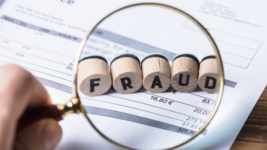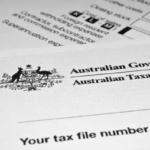Fraud Offences in Australia

The term fraud generally refers to conduct whereby a person or company gains a benefit for themselves or causes a detriment to another person or company through conduct that is dishonest and/or deceptive.
In the context of the Australian criminal law, conduct which can be broadly described as ‘fraud’ is captured by a range of offences contained in various pieces of state and territory legislation, as well as federal legislation – the latter of which applies across the nation.
Here’s a summary of fraud offences across Australia, including the general categories of fraud, the ‘essential elements’ (or ingredients) of the offences, and the penalties and defences that may apply.
Some categories of fraud offences in Australia
There are several broad areas in which offences described as fraud may apply, including:
- Insurance fraud: where people or organisations make insurance claims that they are not entitled to in order to obtain a financial benefit.
- Centrelink or welfare fraud: where a person claims benefits they are not entitled to or claims benefits under a false name.
- Cyber fraud: which means accessing restricted information on a computer and using it for personal gain, or to deprive someone of money or property.
- Tax fraud: which can include claiming false deductions or giving false figures in order to claim a refund.
- Investment fraud: which involves setting up fraudulent investment schemes and disappearing. Investment fraud often targets members of the public, with wide-scale campaigns.
Current fraud laws in Australia
Every state and territory in Australia has a standalone criminal offence of fraud, which is sometime referred to as ‘general fraud’.
This general category is also contained in federal legislation in relation to fraudulent conduct in the context of interactions with Commonwealth entities.
These offences are:
New South Wales fraud laws
Under New South Wales criminal law, the offence of fraud is outlined under section 192E of the Crimes Act 1900. It penalises a person who dishonestly gains a financial advantage by deception.
The section reads:
(1) A person who, by any deception, dishonestly–
(a) obtains property belonging to another, or
(b) obtains any financial advantage or causes any financial disadvantage,is guilty of the offence of fraud.
Fraud can cover money and property, and it’s described as gaining a financial advantage or causing a financial disadvantage through deception or dishonesty.
It includes obtaining a financial advantage for yourself, or inducing another person to do something that results in you obtaining a financial advantage.
The financial advantage does not have to be permanent, and can be temporarily obtained.
There must be an element of deception or dishonesty in the act. If you have the best of intentions, then you can’t be found guilty of fraud.
“Dishonest” means dishonest according to the standards of ordinary people; and being known by the defendant to be dishonest according to the standards of ordinary people.
Federal fraud laws
Under Federal law, fraud is an offence under several sections of the Criminal Code Act 1995 (Cth), including:
- s.134.1(1) Criminal Code – obtaining a financial advantage by deception
- s.135.1(1) Criminal Code – dishonestly obtaining a gain
- s.135.1(3) Criminal Code – dishonestly causing a loss
- s.135.1(5) Criminal Code – dishonestly causing a loss to a third party.
Section 134.1 of the Code reads:
(1) A person commits an offence if:
(a) the person, by a deception, dishonestly obtains property belonging to another with the intention of permanently depriving the other of the property; and
(b) the property belongs to a Commonwealth entity.
Section 135.1(1) of the Code reads:
(1) A person commits an offence if:
(a) the person does anything with the intention of dishonestly obtaining a gain from another person; and
(b) the other person is a Commonwealth entity.
Section 135.1(3) of the Code reads:
(3) A person commits an offence if:
(a) the person does anything with the intention of dishonestly causing a loss to another person; and
(b) the other person is a Commonwealth entity.
Section 135.1(5) of the Code reads:
(5) A person commits an offence if:
(a) the person dishonestly causes a loss, or dishonestly causes a risk of loss, to another person; and
(b) the first-mentioned person knows or believes that the loss will occur or that there is a substantial risk of the loss occurring; and
(c) the other person is a Commonwealth entity.
Victoria
Under Victorian criminal law, the offence of obtaining financial advantage by deception is outlined under section 82(1) of the Crimes Act 1958 (VIC). The section reads:
(1) A person who by any deception dishonestly obtains for himself or another any financial advantage is guilty of an indictable offence and liable to level 5 imprisonment (10 years maximum).
Queensland
Under Queensland criminal law, the offence of fraud is outlined under section 408C of the Qld Criminal Code. The section reads:
(1) A person who dishonestly—
(a) applies to his or her own use or to the use of any person—(i) property belonging to another; or
(ii) property belonging to the person, or which is in the person’s possession, either solely or jointly with another person, subject to a trust, direction or condition or on account of any other person; or(b) obtains property from any person; or
(c) induces any person to deliver property to any person; or
(d) gains a benefit or advantage, pecuniary or otherwise, for any person; or
(e) causes a detriment, pecuniary or otherwise, to any person; or
(f) induces any person to do any act which the person is lawfully entitled to abstain from doing; or
(g) induces any person to abstain from doing any act which that person is lawfully entitled to do; or
(h) makes off, knowing that payment on the spot is required or expected for any property lawfully supplied or returned or for any service lawfully provided, without having paid and with intent to avoid payment;
commits the crime of fraud.
Australian Capital Territory
Under ACT criminal law, the offence of fraud outlined under section 332 of the Criminal Code (ACT). The section reads:
A person commits an offence if the person, by deception, dishonestly obtains a financial advantage from someone else.
Northern Territory
Under NT criminal law, the offence of fraud is outlined under section 228AK of the NT Criminal Code. The section reads:
A person commits an offence if:
(a) the person intentionally engages in deception; and
(b) the conduct mentioned in paragraph (a) results in the person obtaining a financial advantage from another person and the person intended that result; and
(c) the conduct mentioned in paragraph (a) is dishonest.
South Australia
Under South Australian criminal law, the offence of fraud is outlined under section 139 of the Criminal Law Consolidation Act 1935 (SA). The section reads:
A person who deceives another and, by doing so—
(a) dishonestly benefits him/herself or a third person; or
(b) dishonestly causes a detriment to the person subjected to the deception or a third person,
is guilty of an offence.
Western Australia
Under Western Australian criminal law, the offence of fraud is outlined under section 409 of the WA Criminal Code. The section reads:
(1) Any person who, with intent to defraud, by deceit or any fraudulent means —
(a) obtains property from any person; or
(b) induces any person to deliver property to another person; or
(c) gains a benefit, pecuniary or otherwise, for any person; or
(d) causes a detriment, pecuniary or otherwise, to any person; or
(e) induces any person to do any act that the person is lawfully entitled to abstain from doing; or
(f) induces any person to abstain from doing any act that the person is lawfully entitled to do,
is guilty of a crime
Understanding fraud laws in Australia
It’s important to understand the various terms which constitute elements of fraud laws across Australia.
Deception
‘Deception’ generally means a positive act or an omission intentionally or recklessly undertaken to make a person believe a situation that is not true is in fact true.
This can occur by words or conduct, and can relate to matters of fact or law.
In the context of New South Wales criminal law, it extends to any deception, by words or other conduct, as to fact or as to law, including–
(a) a deception as to the intentions of the person using the deception or any other person, or
(b) conduct by a person that causes a computer, a machine or any electronic device to make a response that the person is not authorised to cause it to make.
Financial advantage
Financial advantage is broadly defined under law, and could include conduct such as avoiding a debt, obtaining a loan, or gaining the opportunity to earn money.
Under some offences, you also may be charged if you cause a financial disadvantage – which would apply even if you have haven’t personally benefited from the fraud.
Dishonesty
‘Dishonest’ is a moral judgement made in relation to the behaviour of the defendant.
In most cases, it is assessed according to the standards of ordinary people and known by the defendant to be dishonest according to the standards of ordinary people.
What’s the punishment for fraud offences in Australia?
Punishment for NSW fraud offences
The maximum penalty for committing a fraud offence under the NSW criminal law is 10 years imprisonment.
If a defendant is found guilty and convicted of fraud, they may be able to request a section 10 dismissal or conditional release order, depending on their previous history and the circumstances surrounding the offence.
Section 10 dismissals and conditional release orders are findings of guilt without a conviction, which means that the defendant won’t face penalties for their offence and it won’t appear on their criminal record.
Punishment for Federal fraud offences
The maximum penalty for committing federal fraud offences is 10 years imprisonment.
Punishment for Victorian fraud offences
The maximum penalty for the Victorian fraud offence is 10 years imprisonment.
Punishment for Queensland fraud offences
The maximum penalty for the Queensland fraud offence is 5 years imprisonment.
Punishment for Australian Capital Territory fraud offences
The maximum penalty for the ACT fraud offence is 1000 penalty units or 10 years imprisonment.
Punishment for Northern Territory fraud offences
The maximum penalty for the NT fraud offence is 10 years imprisonment.
Punishment for South Australian fraud offences
The maximum penalty for the SA fraud offence is
- for a basic offence—imprisonment for 10 years;
- for an aggravated offence—imprisonment for 15 years.
Punishment for Western Australian fraud offences
The maximum penalty for the WA fraud offence is:
- if the person deceived is of or over the age of 60 years, to imprisonment for 10 years; or
- in any other case, to imprisonment for 7 years.
Defences to Australian fraud laws
The legal defences to fraud include:
- Where you had a ‘claim of right’ over the property or financial benefit obtained, which is where you genuinely believed you had a legal right to the advantage.
- Where your actions were taken under ‘duress’, which is where you were threatened or otherwise forced to undertake your actions under the threat of serious harm to you or a loved one, and your actions were reasonable in the circumstances, and
- Where you acted in ‘necessity’, which is were your conduct was necessary to avoid serious, irreversible consequences to you or a loved one.
Where a valid legal defence is raised on the evidence, the prosecution must then prove beyond reasonable doubt that the defence does not apply.
If the prosecution is unable to do this, you must be found not guilty.






